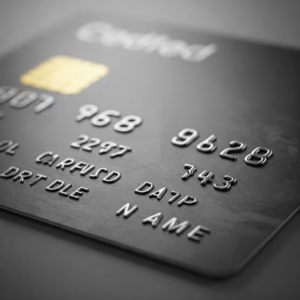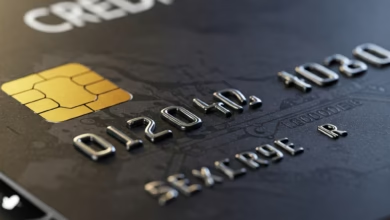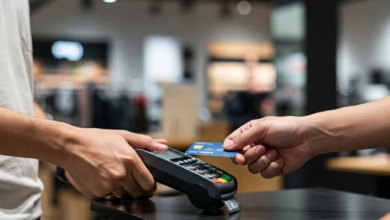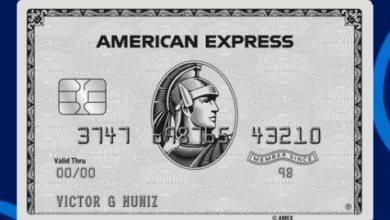What happens if I don’t pay off my credit card?
What happens if I don't pay my credit debt?

Missing a credit card payment might seem like a small oversight, but the consequences can snowball quickly, impacting your financial health and future opportunities. Understanding the potential ramifications is crucial for responsible credit management. This article breaks down what happens when you fail to pay your credit card bill, helping you navigate these situations and avoid long-term financial distress.
Decoding Credit Card Late Payment Consequences: A Step-by-Step Breakdown

When you skip a credit card payment, several things start to happen, often in a progressive manner:
Late Payment Fees: The Immediate Hit to Your Wallet
The most immediate consequence is a late payment fee. Credit card companies charge these fees when your payment isn’t received by the due date. The amount of the fee can vary depending on your credit card agreement and how many times you’ve been late in the past. These fees add to your outstanding balance, making it even harder to catch up.
Interest Charges Pile Up: The Cost of Borrowing Increases
If you carry a balance on your credit card, you’re already accruing interest. When you miss a payment, you’ll continue to be charged interest on the outstanding balance, including the new late fee. Furthermore, your credit card agreement likely has a penalty APR (Annual Percentage Rate) that can be triggered by a late payment. This penalty APR is significantly higher than your regular interest rate, meaning you’ll pay even more in interest charges going forward.
Damage to Your Credit Score: A Long-Term Financial Setback

One of the most significant consequences of not paying your credit card is the negative impact on your credit score. Payment history is a major factor in calculating your credit score. A single late payment can lower your score, and multiple missed payments will cause even more significant damage. A lower credit score can make it harder and more expensive to:
- Get approved for future credit: Loans for cars, homes, or other significant purchases may be denied.
- Secure favorable interest rates: When you do get approved for credit, you’ll likely face higher interest rates, costing you more over time.
- Rent an apartment: Landlords often check credit scores as part of their application process.
- Obtain insurance: In some cases, insurance companies may use credit scores to determine premiums.
- Even get a job: Some employers review credit reports as part of their hiring process.
Potential for Account Closure: Losing Access to Credit
If you repeatedly fail to make payments, your credit card issuer may decide to close your account. This means you will no longer be able to use the credit card, and the outstanding balance will become due immediately. An account closure can further harm your credit score.
Debt Collection Efforts: When the Situation Escalates
If your account goes into default (meaning you’ve missed multiple payments), the credit card company may turn your debt over to a collection agency. These agencies will actively pursue you to recover the outstanding balance, which can involve phone calls, letters, and potentially legal action. This process can be stressful and further damage your financial standing.
Navigating Missed Payments: Steps to Take If You Fall Behind

If you find yourself unable to make a credit card payment, don’t ignore the situation. Here are some steps you can take:
- Contact your credit card issuer immediately: Explain your situation and see if they can offer any assistance, such as a payment plan or a temporary adjustment to your due date.
- Understand the fees and interest: Ask about the specific late fees and any potential increase in your APR.
- Prioritize making at least the minimum payment: While not ideal, making the minimum payment can prevent further negative consequences like additional late fees and a worse impact on your credit score.
- Review your budget: Identify areas where you can cut expenses to free up funds for your credit card payments.
- Consider balance transfer options: If you have good credit (before the late payment significantly impacts it), you might be able to transfer your balance to a card with a 0% introductory APR to save on interest while you pay it down.
- Seek professional help: If you’re struggling with significant debt, consider contacting a credit counseling agency for guidance.
Protecting Your Financial Future: Proactive Credit Card Management
The best way to avoid the negative consequences of not paying your credit card is to practice responsible credit management:
- Pay your bills on time, every time: Set up automatic payments to ensure you never miss a due date.
- Pay more than the minimum: Paying only the minimum will keep you in debt longer and result in more interest charges.
- Keep your credit utilization low: This is the amount of credit you’re using compared to your credit limit. A high utilization rate can negatively impact your credit score.
- Review your credit card statements regularly: Check for any unauthorized charges or errors.
- Avoid overspending: Only charge what you can afford to pay back.
Taking Control of Your Credit Health

Ignoring your credit card bills can lead to a cascade of negative consequences, from immediate fees and higher interest rates to long-term damage to your credit score and potential debt collection. By understanding these risks and practicing responsible credit management, you can protect your financial future and maintain a healthy credit profile. Don’t wait until it’s too late – take control of your credit card habits today.





